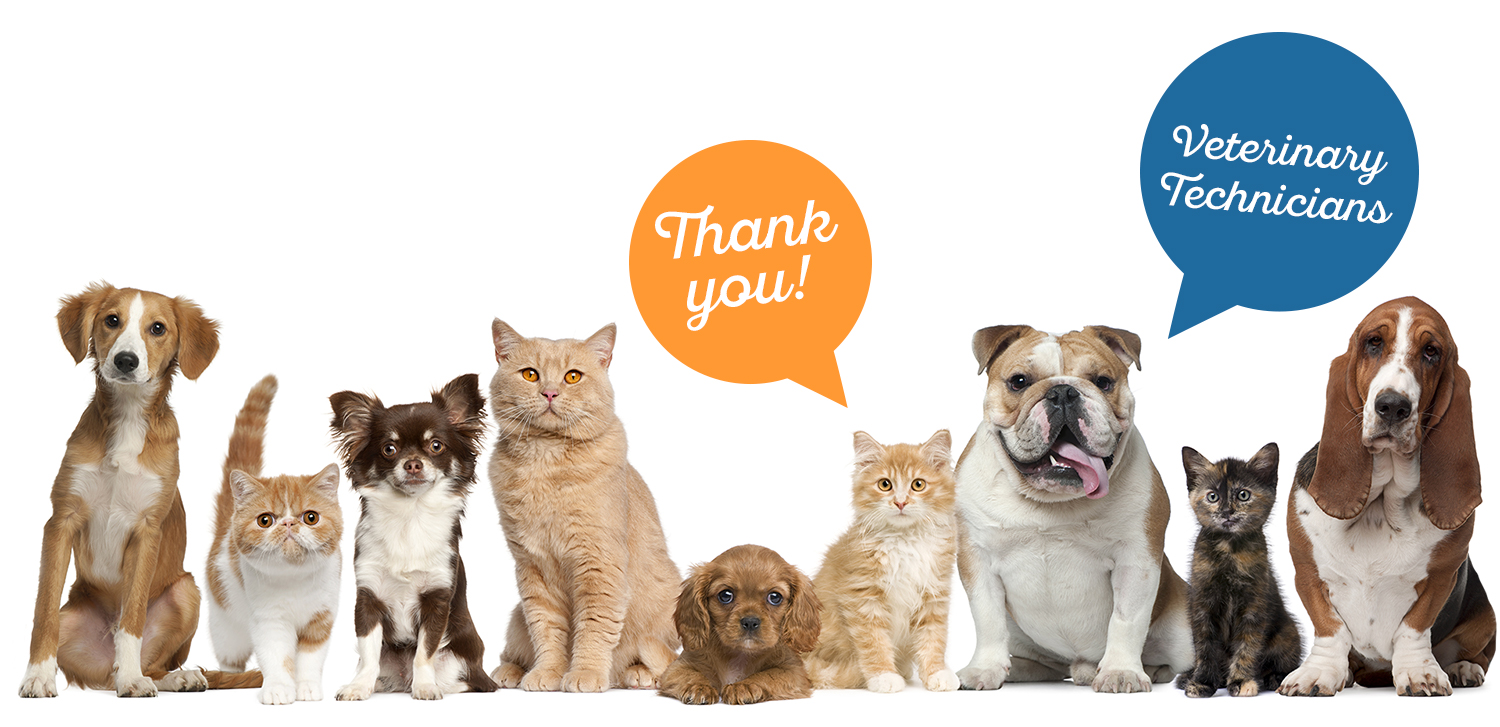October 13-19 is this year’s National Veterinary Technician Week, which honors the hard work that veterinary technicians do to assist veterinarians and help keep practices running efficiently.
In honor of National Veterinary Technicians Week, our CEO, Dr. Mark Olcott, MBA, discusses his experience in working with veterinary technicians, how they play an important role in guiding practices, and how his practice has shown their appreciation for all of the hard work that vet techs do.
Q: In the practices you’ve worked in, what are the responsibilities of veterinary technicians?
A: Veterinary technicians are an incredible part of any well-running and successful practice. From helping with surgery, to drawing blood and analyzing lab work, to conducting patient exams. They know how to place IV catheters, manage the in-house laboratories, and know how to read fecal and urine samples. They handle a lot of phone calls to clients as well. Whether it’s explaining preliminary protocols to clients before they bring in their pet, or making follow-up calls after patient visits. Being a veterinary technician requires individuals to be well-educated so that they can tackle major responsibilities in the practice so that the veterinarian can do what they do best: make diagnoses and outline effective treatment plans. They are the glue that keeps a practice together.

Q: How do veterinary technicians work with other vet techs and veterinarians in practices?
A: Veterinary technicians work very collaboratively on handling the client experience. Every day is different at a general practice and vet techs are prepared to handle those responsibilities. One of the things that differentiates a well-managed practice from one that is not is that a well-managed practice usually has a high ration of technicians to veterinarians (at least 2:1). Some practices will have one technician that works specifically with one doctor, providing assistance so that the veterinarian can be efficient while also providing fantastic client service.
Q: How do veterinary technicians interact
with pet owners?
A: Technicians work a great deal with pet owners. Everybody has a role at a practice, whether it’s Customer Service Representative (CSR), the technician or the doctor. When a pet owner calls and asks a question like “Why is my dog vomiting?” A vet tech is both educated and prepared to handle the question and answer it with the right information. Another example is when a pet owner brings their pet in for an exam. After reception checks in the pet, the vet tech will often collect the necessary preliminary information about the pet, and answer any questions the client may have before the doctor sees them and performs the exam.
Q: What kind of challenges can a veterinary technician expect to face when assisting veterinarians?
A: Technicians have a lot of responsibility when assisting veterinarians. They answer client questions regarding pets care. They manage frustrated clients who are having trouble administering medication. Once the pet owner comes in with their pet, the technician makes sure that the client has a good experience, even making sure that no one gets bitten by a scared or upset pet! They sometimes have to take a very detailed medical history and relay that vital information to the doctor before an exam. They have to keep the doctor updated on the pet’s test results, immunizations, and lab work. They provide great medical care to the patient and a wonderful experience for the client.
Q: How has working with technicians help improved
you as a vet?
A: It’s a two-way street. I’m a firm believer in the traditional teaching method of “See one, do one, teach one.” One of the best ways to learn something is to teach it to another person. You learn to be a better veterinarian by teaching veterinary technicians. On the other side, as a doctor, if you are new to a practice, but the vet techs have been there for a longer time, they can teach you ways and methods that you had never thought about. We all learn from each other and it helps me. Another example is through continuing education (CE.) A technician that I worked with had recently gone to a course about prescription diets. Since that information is constantly changing, they learned about the latest research and then shared it with me. They educate us (doctors) on advances in pharmaceuticals. A veterinarian can learn a lot of new information from technicians and it’s important that they use them as a resource and ensure they are also continuously learning and expanding their skill set.
Q: At your practice, what did you do to celebrate veterinary technicians during this week?
A: We made sure that all of our vet techs knew how much we appreciated them. Not only did we want them to feel appreciated by the staff, but also by the clientele. So we’d put signs up in front of the office saying how much we appreciate them, we’d host a special happy hour in their honor, and buy lunch for them. They are an essential part of any well-run practice and we wouldn’t be as strong as we are without their help.
 by a veterinarian
by a veterinarian


